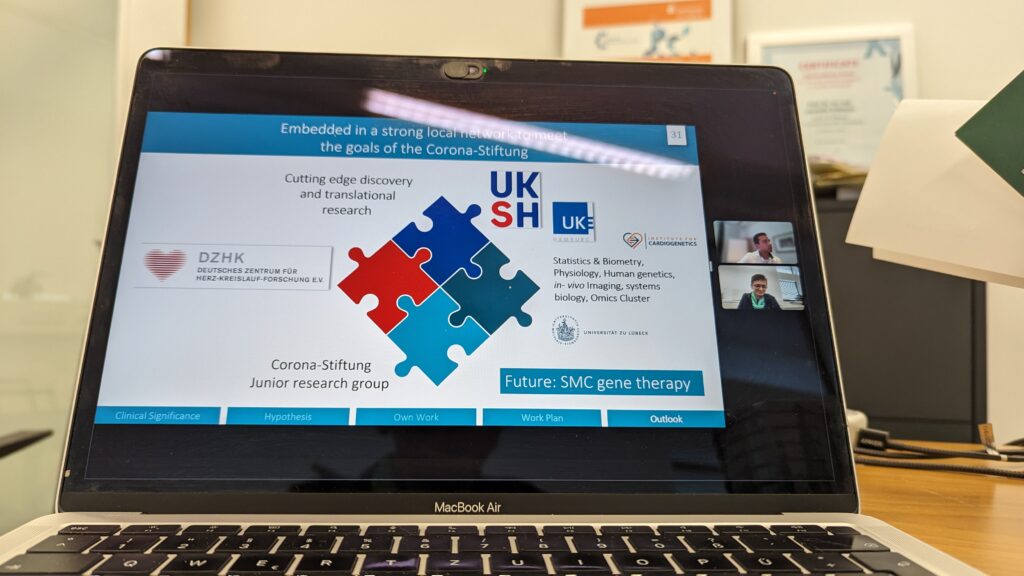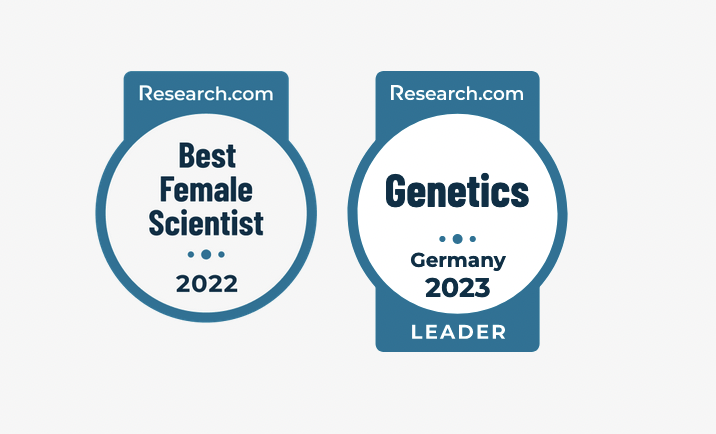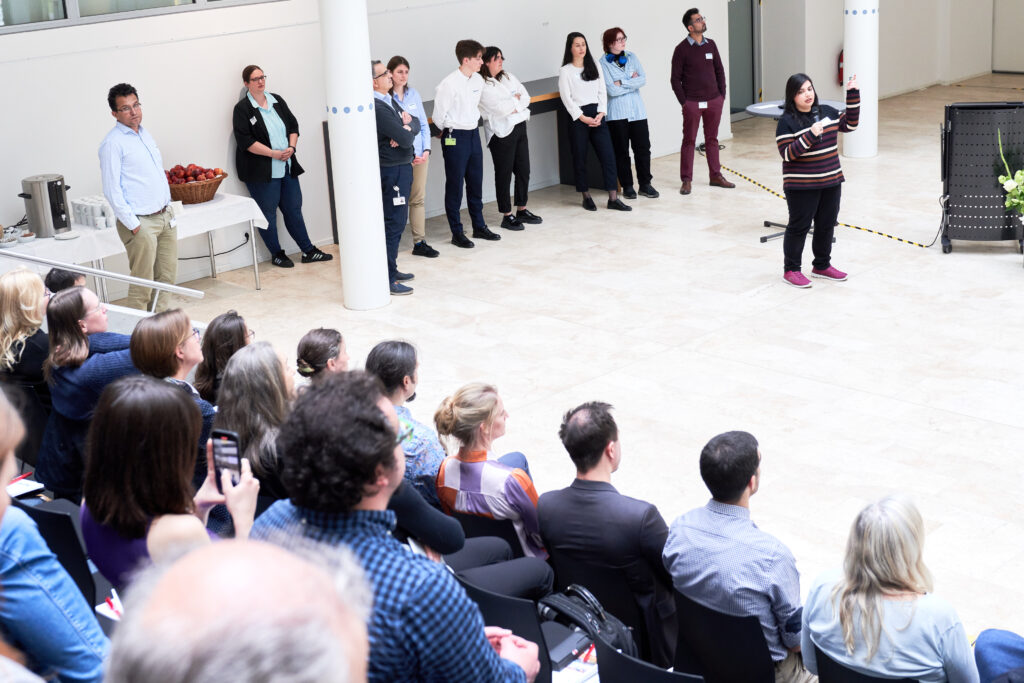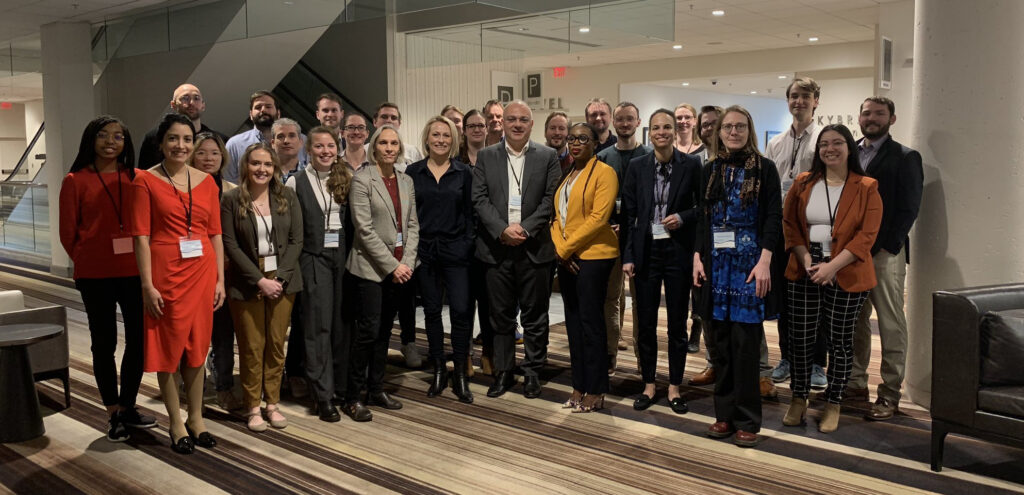Jeanette Erdmann is a new member of the National Academy of Sciences Leopoldina
The National Academy of Sciences Leopoldina unites researchers with special expertise in their respective fields. The criterion for admission is outstanding scientific achievement.
Among scientists, admission to the ranks of Leopoldina members is considered one of the highest honours – Prof. Jeanette Erdmann has received it. The biologist is the only professor at the University of Lübeck who is currently a member of the National Academy of Sciences Leopoldina.
Her path into the world of research led Jeanette Erdmann to the Institute of Human Genetics in Bonn after completing her studies at the University of Cologne, where she wrote her doctoral thesis. After her doctorate, she worked as a research group leader in Berlin and Regensburg. Jeanette Erdmann completed her habilitation at the University of Regensburg. She has worked at the University of Lübeck since 2003.
In 2012 she was appointed W3 Professor for Life in Lübeck and subsequently DZHK Professor by the German Centre for Cardiovascular Research. Since 2013, she has successfully led the newly founded Institute of Cardiogenetics, which aims to better understand the genetic factors that lead to cardiovascular diseases, e.g. atherosclerosis and heart attacks, in order to develop new therapies. “Since the beginning of my PhD, I have been working on the inheritance of common, so-called complex diseases, first with schizophrenia and depression and for 15 years now with cardiovascular diseases. For a few years now, however, I have expanded my field of research and we are currently also developing a therapy for a rare neuromuscular disease that I diagnosed myself with a few years ago,” reports Prof. Jeanette Erdmann.
With her expertise, the director of the Institute of Cardiogenetics at the University of Lübeck now strengthens the Leopoldina, which is a classic learned society with its approximately 1,600 members from almost all scientific fields. The proportion of female scientists among its members has risen from seven to 15 per cent in the past ten years. “Being accepted into the Leopoldina is a success and a great honour for me in two ways,” explains Prof. Erdmann. “On the one hand, I am pleased that my scientific work has been recognised by the Academy. Here I would like to thank my staff in particular, as well as the national and international cooperation partners of the past 15 years, without whom this success would not have been possible. On the other hand, admission to the Leopoldina rewards the efforts of the past years and perhaps strengthens more young women and people with physical limitations to embark on the fulfilling, but sometimes also rocky path of an academic career. I would be extremely pleased about that.”
The Academy’s tasks include representing German science abroad and advising politicians and the public. The Leopoldina unites researchers with special expertise in their respective fields. The approximately 1,600 Academy members come from over 30 countries. Every year, about 50 scientists are elected to the Academy for life in a multi-stage selection process. Admission follows a nomination by Academy members, which is followed by a multi-stage selection process by the Section, the Class and the Presidium.
Since the Academy was founded in 1652, more than 7,000 personalities have been admitted to its ranks. These have included Marie Curie, Charles Darwin, Albert Einstein, Johann Wolfgang von Goethe, Alexander von Humboldt, Justus von Liebig and Max Planck.
Schützt Eure genetische Identität
An article on “Protecting genetic identity” appeared in the Laborjournal in June. This article was written by Salim Seyfried and Jeanette Erdmann during the pandemic. Both hope for a broad discussion on the important topic of lifestyle DNA testing.
Functional Genomics gets a major boost at the ICG
The Institute for Cardiogenetics at the University of Lübeck is thrilled to announce a major grant from the Corona-Stiftung. The fund is dedicated to supporting the innovative work of Dr. Redouane Aherrarhou, a trailblazing researcher who, under the mentorship of Prof. Jeanette Erdmann, will establish his independent junior research group to take a novel approach to understanding coronary artery disease (CAD). The research project, entitled “Dissecting Sex Differences in Coronary Artery Calcification with System Genetics”, aims to illuminate the complex genetic interplay behind coronary artery calcification (CAC) – a phenomenon strongly associated with CAD and fatal plaque rupture.
pyHeart4Fish: Chamber-specific heart phenotype quantification of zebrafish in high-content screens
Front Cell Dev Biol. 2023 Apr 11;11:1143852. doi: 10.3389/fcell.2023.1143852.
The DZHK research platform: maximisation of scientific value by enabling access to health data and biological samples collected in cardiovascular clinical studies.
Hoffmann J, Hanß S, Kraus M, Schaller J, Schäfer C, Stahl D, Anker SD, Anton G, Bahls T, Blankenberg S, Blumentritt A, Boldt LH, Cordes S, Desch S, Doehner W, Dörr M, Edelmann F, Eitel I, Endres M, Engelhardt S, Erdmann J, Eulenburg K, Falk V, Felix SB, Frank D, Franke T, Frey N, Friede T, Geidel L, Germans L, Grabmaier U, Halle M, Hausleiter J, Jakobi V, Jebran AF, Jobs A, Kääb S, Karakas M, Katus HA, Klatt A, Knosalla C, Krebser J, Landmesser U, Lee M, Lehnert K, Lesser S, Leyh K, Lorbeer R, Mach-Kolb S, Meder B, Nagel E, Nolte CH, Parwani AS, Petersmann A, Puls M, Rau H, Reiser M, Rienhoff O, Scharfe T, Schattschneider M, Scheel H, Schnabel RB, Schuster A, Schmitt B, Seidler T, Seiffert M, Stähli BE, Stas A, J Stocker T, von Stülpnagel L, Thiele H, Wachter R, Wakili R, Weis T, Weitmann K, Wichmann HE, Wild P, Zeller T, Hoffmann W, Zeisberg EM, Zimmermann WH, Krefting D, Kühne T, Peters A, Hasenfuß G, Massberg S, Sommer T, Dimmeler S, Eschenhagen T, Nauck M.
Clin Res Cardiol. 2023 Mar 8. doi: 10.1007/s00392-023-02177-5.
Homozygous frameshift variant in desmoglein-2 causes biventricular arrhythmogenic right ventricular cardiomyopathy.
Ayan HNU, Ali PS, Korejo AA, Thiele H, Nürnberg P, Tariq M, Jamal SZ, Erdmann J, Ahmad I.
Clin Genet. 2023 Feb 27. doi:10.1111/cge.14321.
Autoimmune pre-disease.
Bieber K, Hundt JE, Yu X, Ehlers M, Petersen F, Karsten CM, Köhl J, Kridin K, Kalies K, Kasprick A, Goletz S, Humrich JY, Manz RA, Künstner A, Hammers CM, Akbarzadeh R, Busch H, Sadik CD, Lange T, Grasshoff H, Hackel AM, Erdmann J,
König I, Raasch W, Becker M, Kerstein-Stähle A, Lamprecht P, Riemekasten G, Schmidt E, Ludwig RJ.
Autoimmun Rev. 2023 Feb;22(2):103236.








